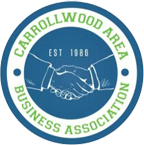Wesley Chapel Slip & Fall Attorney
No one expects to slip and fall whenever they enter a business, private home, or government building. Yet thousands of people are injured in Florida in slip and fall accidents. They incur substantial medical bills and other losses while struggling to get healthy again.
Florida law is quite clear that property owners cannot let their property fall into disrepair. Instead, they owe a duty to keep the property reasonably safe for those they invite to enter. Contact a Wesley Chapel slip & fall attorney at Moore Law for more information about whether you can bring a legal claim.
Hazards Underfoot
Some people fall because they are clumsy and trip over their own feet. But most slip and falls or trip and falls are caused by some hazard on the property that upsets a person’s balance:
- Spilled liquids
- Condensation
- Rainwater and ice
- Wet leaves
- Bare or torn carpeting
- Uneven floorboards
- Debris or litter
- Power cords crossing the floor
- Freshly mopped or waxed floors
Sometimes, a property owner creates the hazard, but in other cases the hazard might have developed accidentally. Still, owners are sometimes responsible for inspecting their property to find even those hazards that are created naturally.
What You Need to Prove to Win Your Case
Generally, a property owner will only be responsible for compensation if they failed to fulfill their duty to the person injured. What does this mean? In Florida, property owners must take certain steps depending on why the victim was on the property. This is called the victim’s “status”:
- A business owes a duty of care to invitees because they have invited them onto the property for business purposes. Specifically, the owner must keep the property reasonably safe and warn invitees of non-obvious hazards they know about or should know about.
- A person who is allowed to enter the property for their own purposes is a licensee. In Florida, a property owner cannot intentionally harm licensees and should warn them of non-obvious dangers.
- If a person has no right to be on the property, they are a trespasser. An owner only has a duty to not intentionally injure them.
Did the Property Owner Know of the Hazard?
One question pops up regularly when the owner did not create the hazard. The issue is knowledge. Did the owner know, or should they have known, of the hazard? For example, an air conditioning unit might leak liquid on the floor of a business. But because the owner didn’t go into that part of the store, they never saw the condensation pooling there.
If the owner has actual knowledge of a hazard, they must fix it or warn invitees of it. But Florida also recognizes something called “constructive” knowledge. When a person slips on a transitory substance, constructive knowledge exists when it regularly recurs or when it has existed for so long that a reasonably careful owner should have found it. If the condensation pools for hours, then the owner has constructive knowledge and can be held liable for a person slipping on it.
Let Our Wesley Chapel Slip and Fall Lawyer Build Your Case
Slip and fall cases are not as simple as some people imagine. Many factual issues arise, and you would benefit from meeting with an experienced Wesley Chapel slip and fall attorney at Moore Law. Contact us to schedule a free consultation.








